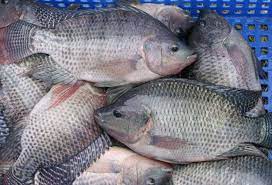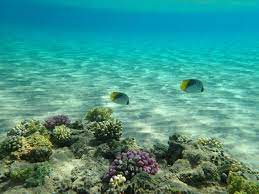Today Current Affairs: 22nd August 2022 for UPSC IAS exams, State PSC exams, SSC CGL, State SSC, RRB, Railways, Banking Exam & IBPS, etc
Table of Contents
Sovereign Gold Bond Scheme:

Sovereign Gold Bonds(SGB) 2022-23 (Series II) will be opened for subscription during the period August 22-26, 2022 with a Settlement date of August 30, 2022.
- SGB scheme was launched in November 2015 with an objective to reduce the demand for physical gold and shift a part of the domestic savings – used for the purchase of gold – into financial savings.
- The Gold Bonds are issued as Government of India Stock under the Government Securities (GS) Act, 2006.
- These are issued by the RBI (Reserve Bank of India) on behalf of the Government of India.
- The minimum permissible investment limit will be 1 gram of gold, while the maximum limit will be 4 kg for individuals, 4 kg for Hindu Undivided families and 20 kg for trusts and similar entities per fiscal (April-March) notified by the government from time to time.
- Bonds are sold through Commercial banks, Stock Holding Corporation of India Limited (SHCIL), designated post offices and recognised stock exchanges vizNational Stock Exchange of India Limited and Bombay Stock Exchange, either directly or through agents.
- The bonds are restricted for sale to resident individuals, Hindu Undivided Families (HUFs), trusts, universities and charitable institutions.
- The gold bonds come with a maturity period of eight years, with an option to exit the investment after the first five years
- Bonds can be used as collateral for loans. The loan-to-value (LTV) ratio is to be set equal to ordinary gold loans mandated by the Reserve Bank from time to time.
Har Ghar Jal:

Goa became 1st state to be certified with ‘Har Ghar Jal’ in the country.
- Process followed: After every household in the village is connected with tap water, Gram Sabha passes a resolution that not a single household is left out.
- Only after every village certifies its, State can be declared ‘Har Ghar Jal’
- Har Ghar Jal aims to encourage the state to ensure tap water connection to every household by 2024
- Under Jal Jeevan Mission (Ministry of Jal Shakti)
- Above 52% of the rural households are now connected with tap water
Tilapia Aquaculture Project:

Inspired by Pradhan Mantri Matsya Sampada Yojana (PMMSY), the Technology Development Board (TDB) has extended support to the Tilapia Aquaculture Project with Israeli Technology.
- Technology Development Board (TDB) is a statutory body under the Ministry of Science and Technology.
- The term aquaculture broadly refers to the cultivation of aquatic organisms in controlled aquatic environments for any commercial, recreational or public purpose.
- The breeding, rearing and harvesting of plants and animals takes place in all types of water environments including ponds, rivers, lakes, the ocean and man-made “closed” systems on land.
- Purposes:
- Food production for human consumption,
- Rebuilding of populations of threatened and endangered species,
- Habitat restoration,
- Wild stock enhancement,
- Production of baitfish, and
- Fish culture for zoos and aquariums.
Tilapia:
- Tilapia, also dubbed aquatic chicken, has emerged to be one of the most productive and internationally traded fish foods in the world.
- The culture of tilapia has become commercially popular in many parts of the world and due to its quick growth and low maintenance cultivation, it was dubbed aquatic chicken.
- Tilapia is tolerant of a variety of aquaculture environments, it can be farmed in brackish or salt water and also in pond or cage systems.
CAROTAR, 2020:

The Central Board of Indirect Taxes and Customs (CBIC) issued a circular, stating that custom officers should be sensitive in applying CAROTAR (Customs Administration of Rules of Origin under Trade Agreements) Rules, 2020 and maintain consistency with the provisions of relevant trade agreements or its Rules of Origin.
- Exemptions specified in a Free Trade Agreement (FTA) with regard to country of origin will prevail in case of conflict between revenue department and importer.
- CAROTAR, 2020 set guidelines for enforcement of the ‘rules of origin’ for allowing preferential rate on imports under Free Trade Agreements.
- They supplement the existing operational certification procedures prescribed under different trade agreements.
- They were notified in August, 2020 by the Ministry of Finance.
- Provisions:
- An importer is required to do due diligence before importing the goods to ensure that they meet the prescribed originating criteria.
- An importer will have to enter certain origin related information in the Bill of Entry, as available in the Certificate of Origin.
- Importers will have to ensure that imported goods meet the prescribed ‘rules of origin’ provisions for availing concessional rate of customs duty under Free Trade Agreements (FTAs).
- Importers have to prove that imported products have undergone value addition of at least 35% in the countries of origin.
- Earlier, merely a country of origin certificate, issued by a notified agency in the country of export was sufficient to avail the benefits of FTAs.
- This was exploited in many cases, i.e., the FTA partner countries have been claiming to have produced the goods in question without having the necessary technological capacity for the required value addition.
Marine Biodiversity:

A delegation from India and other member countries of the United Nations are in New York to deliberate on a one-of-its-kind agreement to conserve marine biodiversity in the high seas, namely the oceans that extend beyond countries’ territorial waters.
- The agreement follows a resolution by the UN General Assembly in May and is expected to be the final in a series set in motion since 2018 to draft an international legally binding instrument under the 1982 United Nations Convention on the Law of the Sea (UNCLOS).
- The high seas comprise nearly 45% of the Earth’s surface.
- A key aspect of the agreement is deciding on the rights of companies that undertake exploration for biological resources in the high seas.
- Last June, the Union Cabinet approved a ‘Blue Economy’ policy for India, a nearly ₹4,000-crore programme spread over five years.
- This among other things will develop a manned submersible vessel as well as work on “bio-prospecting of deep-sea flora and fauna including microbes”.
Lord Curzon:

The 119-year-old Curzon Gate in Bardhaman in West Bengal is at the centre of a political row after the Trinamool Congress (TMC)-run Bardhaman municipality has decided to erect a statue of Bardhaman’s Maharaja Bijay Chand Mahatab and his wife Radharani in front of the city’s prominent landmark.
- Of all the Viceroys of India, Curzon is possibly the most criticised — he is the man who partitioned Bengal in 1905, and triggered a wave of Bengali nationalism that contributed to the wider Indian national movement.
- He was also one of the more openly imperialist of viceroys, and a man who saw Britain’s rule over India as critical to the survival of empire. In 1900, Curzon famously stated, “We could lose all our [white settlement] dominions and still survive, but if we lost India, our sun would sink to its setting.”
- He served as Under-Secretary of State for India (1891-1892), and for Foreign Affairs (1895-1898), before being appointed Viceroy of India in 1899.
- Curzon created a separate Muslim majority province of the North-West Frontier Province, sent a British expedition to Tibet, established a separate police service, and established the Archaological Survey of India, in order to study and protect historical monuments.
AK-203 Assault Rifles:

The production of the AK-203 assault rifles by the Indo-Russian joint venture at Amethi, Uttar Pradesh, is set to begin by year-end and the manufacturing equipment required for it will be dispatched from Russia shortly, according to a senior official of Kalashnikov, the Russian company which manufactures the rifles.
- The production was originally scheduled to begin early this year.
- As per the contract, over 6.1 lakh AK-203 assault rifles costing over ₹5,000 crore will be manufactured by a Joint Venture, Indo-Russian Rifles Private Ltd (IRRPL), at Korwa, Amethi in Uttar Pradesh.
- IRRPL was set up jointly between erstwhile OFB [now Advanced Weapons and Equipment India Limited (AWEIL) and Munitions India Limited (MIL)] of India and Rosoboronexport (RoE) and concern Kalashnikov of Russia.
- As per contractual terms, first 70,000 AK-203 rifles will be produced in India with a phased increase in the extent of localisation from 5% to 70%.
- The remaining rifles will be produced with 100% localisation.
Exercise Pitch Black 2022:

An Indian Air Force contingent has reached Australia to participate in Exercise Pitch Black 2022.
- The exercise is being held in Darwin till the 8th of next month.
- This is a biennial, multi-national exercise hosted by the Royal Australian Air Force.
- The Defence Ministry said that the exercise will see the participation of over one hundred aircraft and two thousand 500 military personnel from various air forces.
GI Tag To Mithila Makhana:

Union government has awarded Geographical Indication (GI) tag to Mithila Makhana.
- Mithila Makhana or Makhan (botanical name: Euryale ferox Salisb.) is a special variety of aquatic fox nut cultivated in Mithila region of Bihar and Nepal.
- Once a product gets this tag, any person or company cannot sell a similar item under that name. This tag is valid for a period of 10 years following which it can be renewed.
- Makhana is the one of the three prestigious cultural identity of Mithila. Pan, Makhan and Machh (fish) are the three prestigious cultural identity of Mithila.
- In Mithila, Makhana is also termed as Makhan. It is also very famous in Kojagara festival of Maithil Brahmins celebrated for newly married couples.
- Makhana contains protein and fiber, along with micronutrients like calcium, magnesium, iron, and phosphorus.
10th National Conference Of Women Police:

In Himachal Pradesh, the 10th National Conference of Women Police is on August 21, 2022,in Shimla
- More than two hundred women police officers and employees across the country are participating in this two-day National conference.
- The conference is being organised by the Ministry of Home Affairs (MHA) and Bureau of Police Research and Development (BPRD) in collaboration with Himachal Police.
- The main objective of this conference is to enhance the leadership potential of women police officers and discuss their problems and challenges.
- State Director General of Police Sanjay Kundu said, at present the strength of women in the police force in Himachal is 13 percent and the women quota in the police has been increased to 25 percent.




